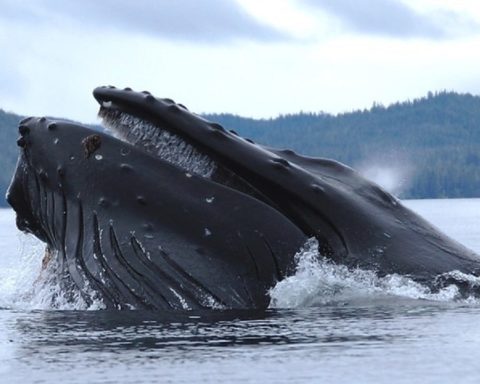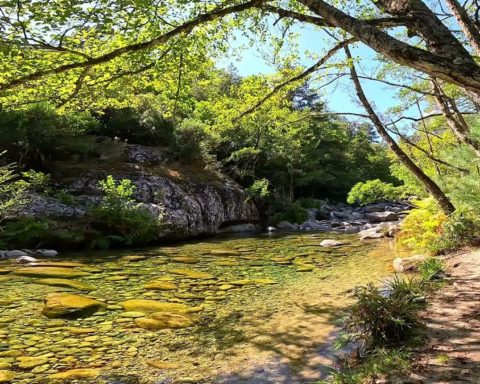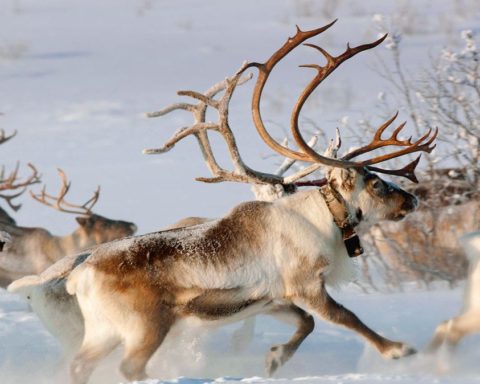Poussées par l’augmentation des températures, de nombreuses espèces végétales fuient les zones trop chaudes pour migrer vers des altitudes ou latitudes plus élevées. Le phénomène s’accélère partout et notamment en Europe où une vaste étude internationale a observé la migration de colonies entières de plantes vers des sommets apparemment plus accueillants. De quoi bouleverser écosystèmes et paysages, à grande vitesse.
Aa biodiversité des sommets des montagnes est en train de s’enrichir de façon spectaculaire. Et ceci n’est pas une bonne nouvelle. C’est le résultat de migrations de plantes poussées par la « grande accélération » du changement climatique. Ce constat alarmant est le résultat d’une vaste étude menée par une cinquantaine de chercheurs européens et dont les résultats ont été publiés par la revue Nature. Les scientifiques ont, pour la première fois, mesuré sur le long terme –145 ans–– l’évolution de la flore de 302 massifs européens : Alpes, Pyrénées, Carpates, sommets d’Écosse, de Scandinavie, de Norvège, etc.
For 87% of them, the plants took advantage of increasingly mild weather conditions to colonize them. A migration that concerns even species known to move slowly. The number of plant species that colonised the European peaks between 2007 and 2016 would thus be five times higher than that observed between 1957 and 1966.
There is no doubt in the minds of scientists that this acceleration is caused by rising temperatures. Indeed, the rise in temperatures has reached 2°C or 3°C in some massifs over the past century, with a more pronounced upward curve in recent decades.
Researchers also note that other global factors such as pollutant-related atmospheric nitrogen deposition or human use of the summits do not explain this acceleration.
Great acceleration
La « grande accélération », biologique, météorologique ou chimique, est un concept proposé par plusieurs scientifiques, dont le Néerlandais Paul Crutzen, Prix Nobel de chimie 1995, pour décrire la croissance exponentielle des altérations de la biosphère caractérisant l’anthropocène, l’époque géologique où l’homme est devenu la principale force agissant sur la Terre.
The phenomenon observed since the 1950s by the scientific community is " today perceptible in the most remote sites of the planet: the mountain peaks ", the CNRS points out in a press release.
Ces écosystèmes montagnards pourraient en outre être « fortement perturbés à l’avenir », note le CNRS.
For, if at first, biodiversity is growing, without any extinction observed in the immediate future, this may not last: researchers warn against the disappearance of certain plants from the summits, unable to compete with the more competitive generalist species from the lower levels. « Increased species richness should be a transitory phenomenon, hiding the accumulation of an extinction debt. to come", prevents the study. Aggravating factor is that newcomer plants in an ecosystem are generally more vigorous, and their size and larger leaf area promote photosynthesis. Native populations will not be able to resist them.
" Even if biodiversity is increasing, it is not necessarily something that can be sustained. "says one of the authors, Jonathan Lenoir, a researcher at the CNRS, to the AFP. The plants on the summits will eventually be able to withstand temperature variations, but not necessarily competition, with the risk of seeing generalist species". supplanting emblematic, and often endemic, species found only there. ", notes the ecologist.
La Plateforme intergouvernementale sur la biodiversité (IPBES) a produit un bilan alarmant de l’état de la biodiversité dans le monde. En Europe, 42% des espèces d’animaux et de plantes terrestres ont vu leur population décliner ces dix dernières années.
Sources: CNRS, Nature, AFP
Première publication dans UP’ Magazine : 10/10/21












